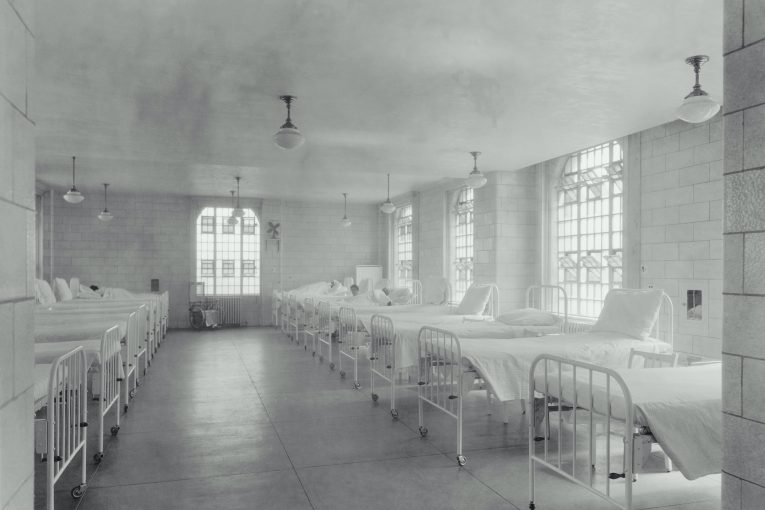
 Group Fears Return to the ‘Bad Old Days’ of Broken Promises and Forced Institutionalization
Group Fears Return to the ‘Bad Old Days’ of Broken Promises and Forced Institutionalization
Special to the Vanguard
Sacramento, CA – A coalition has formed to oppose Proposition 1 on the March 5, 2024, ballot, created by two bills (SB 326 and AB 531) signed Thursday by Governor Gavin Newsom.
Californians Against Proposition 1 is a broad, nonpartisan coalition of people, including those who provide and receive local and statewide mental health services. We are concerned with the many issues raised by the proposition, from the bond itself to the many complex changes to the state’s system of delivery of services to vulnerable, and often marginalized, populations.
Opposition Statement to Proposition 1
Financial support for a wide array of effective, voluntary, evidence-based, community-based, accessible, service options will be dramatically cut. Also on the chopping block is one of the only funding sources for peer support and culturally responsive mental health services for racial and ethnic minority communities.
In their place, Proposition 1 would massively expand involuntary treatment options. There is no evidence base of effectiveness for these forced treatment proposals, and a multitude of reports show how these attempts at care primarily result in further  distress and harm to the service user.
distress and harm to the service user.
This is not “modernization,” as supporters claim. It is disruption and destruction.
Disrespecting the voters and existing programs, Proposition 1 drastically alters, for the worse, how our state government will approach delivery of mental health and addiction recovery services.
Proposition 1 hurts people served by programs that were created by a landmark voter initiative. In 2004, Proposition 63 established a dedicated funding source, the Mental Health Services Act (MHSA), for community-based mental health services.
Under Proposition 1, almost a third of available funding from the voter-approved MHSA would be diverted to other purposes, and much of the remaining MHSA funding would be opened up for competition among many kinds of under-funded services, ranging from outpatient mental health services, to peer support, to substance abuse treatment, to housing, to prevention and child and family programs.
These cuts and competition will hit our communities hard. This drastic change to the MHSA breaks the promise voters made two decades ago and threatens to bring back the “bad old days” of both broken promises for mental health care and failed coercive treatment and institutionalization. Voters have the power to stop this tragedy and stand behind the promise they already made by voting “no” on Proposition 1.
Questionable Legislative Process
Our opposition coalition includes a broad and diverse range of stakeholders including those who provide, receive, and monitor the effectiveness of local and statewide mental health services. At no point in the design of this legislation did the state legislature or Governor Newsom’s administration bring us to the table as co-participants in the design of this supposed “reform.”
Proposition 1 was largely designed by government administrators without community input and without our consent. It was often a rushed and chaotic process. This measure fundamentally fails to honor the baseline disability justice principle of “nothing about us, without us.”
Moreover, there are numerous questions about the route these bills took through the legislative process. Two separate bills, one a bond measure, and the other changes to a voter initiative, were merged at the last minute into one, enormously complicated ballot measure. The measure will run hundreds of pages. How does anyone expect voters to know what is in this legislation?
After the 11th hour, bill authors made extremely questionable substantive last-minute amendments to the bond portion of Proposition 1 that opened the door to funding “locked” treatment facilities. For over five full months, the bill authors promised that the bond would only fund voluntary treatment in unlocked facilities. Then, three days before the end of the legislative session, they changed the language without debate to allow upward of $4 billion dollars to fund construction of new involuntary and “locked” treatment facilities for people with mental illness and substance use disorders.
In combination with the new CARE Court program, the state is prioritizing force-first, fail-first and coercive approaches in lieu of alternative solutions that we know work, and that preserve human dignity. This late action raises the gravest suspicions among advocates for the people who inevitably will be caught in the crosshairs of this new system.
Forced Treatment Doesn’t Work – Why Destroy Existing, Alternative Programs?
It has been consistently shown that few to no research studies exist confirming the effectiveness of forced treatment. What sparse studies do exist have found that forced treatment confers no clinical benefit, and that forced treatment is highly associated with harmful negative outcomes.
Meantime, a broad array of studies show a range of effective, evidence-based, community-based alternative voluntary treatment options exist. Treatment options that work under the MHSA are having their funding sources slashed under Proposition 1.
We note that California’s nonpartisan Legislative Analyst Office report found that “the administration has not provided an assessment of how the changes may negatively impact current services” and that “the administration’s justification of its proposed changes is incomplete.”
This ballot measure will reduce our state’s ability to provide accessible and effective care for BIPOC, LGBTQIA+, and other marginalized communities, while magnifying harm through the presence of well-documented institutional racism and homophobia.
We believe that some legislators and supporters of this measure were well motivated and believe in some of the broader stated aims of the proposed measure.
They might have achieved true consensus on this measure if they had not so crassly attacked the funding lifeline that so many programs depend on today or introduced forced treatment into the bill at the last minute. Our community sees, hears and feels this as disrespect, and we fear for our bodily autonomy and freedom.
Proposition 1 is the wrong approach. The voters should say “no.”
